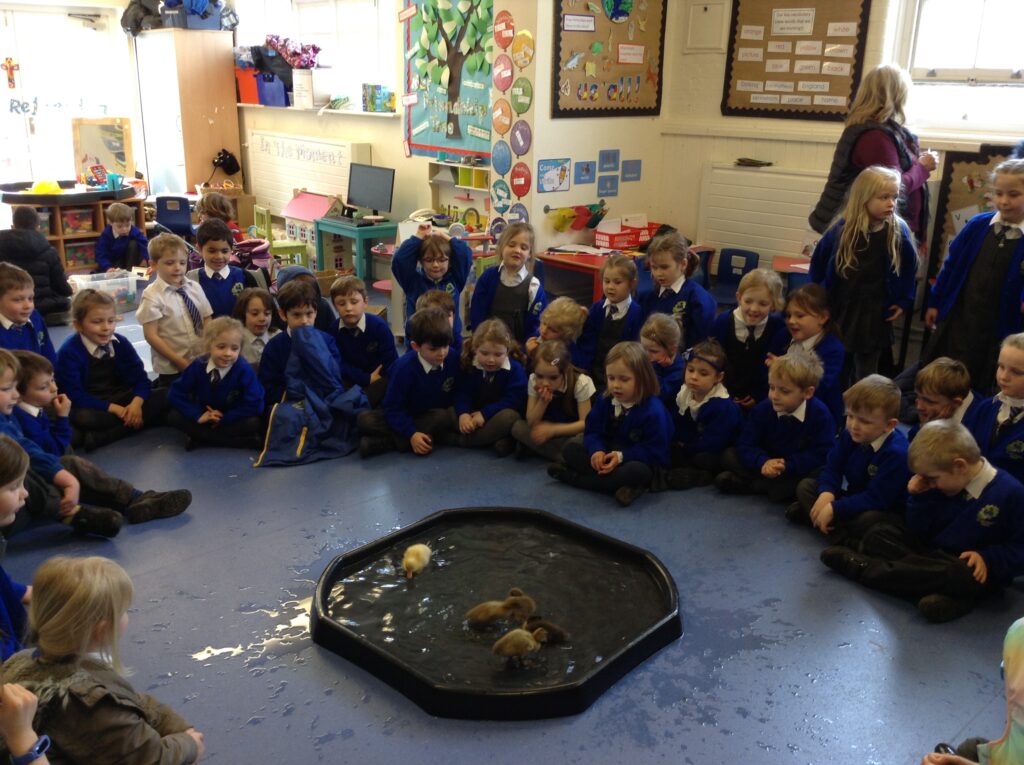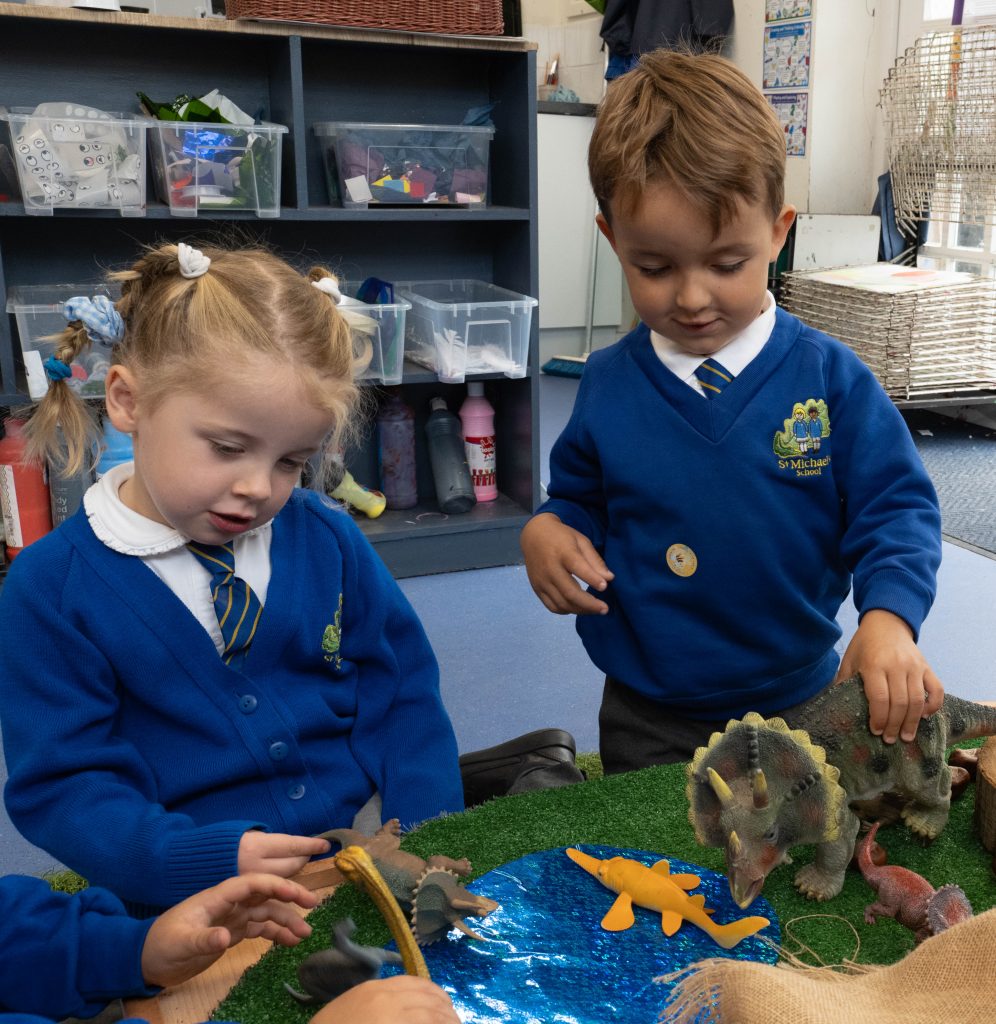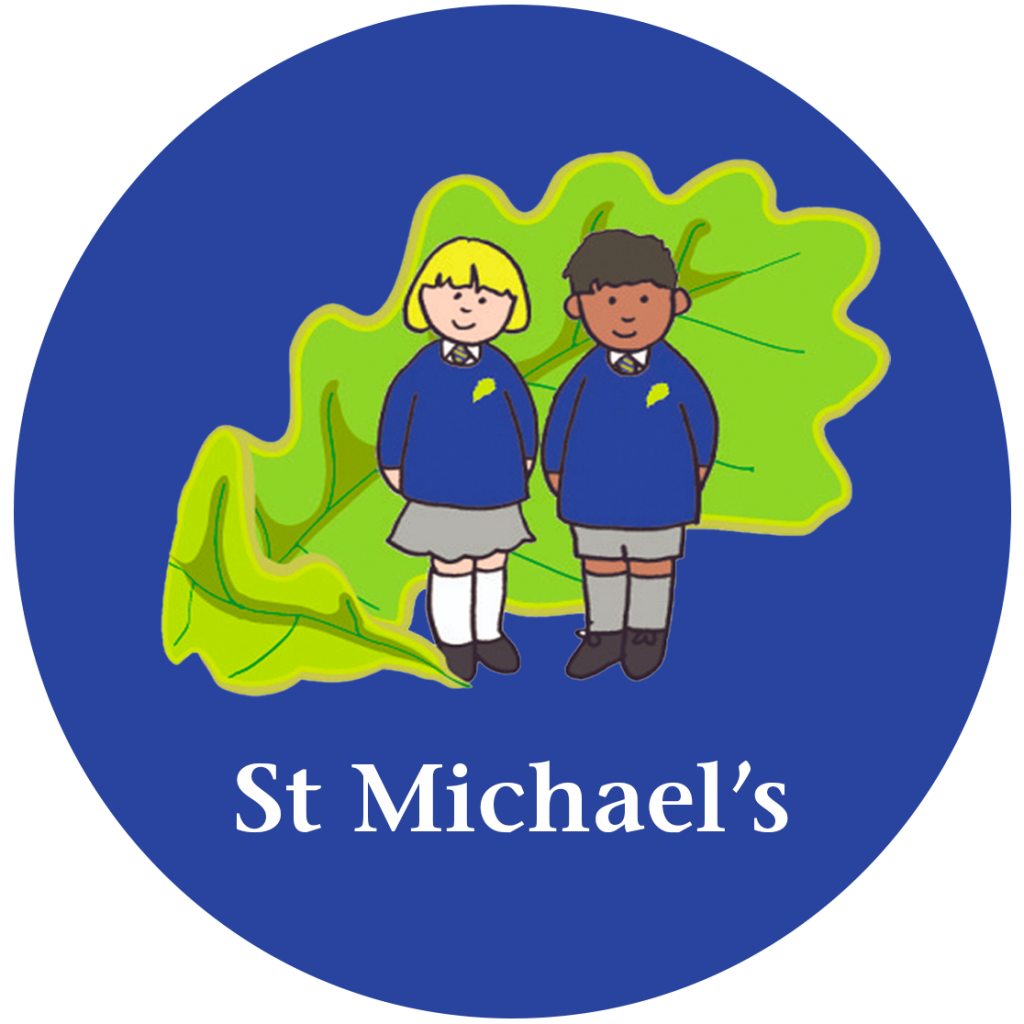Computing
We believe that if we open our hearts and minds to the possibilities each and every one of us, no matter how small, can make a difference in our school and beyond. The parable of The Mustard Seed teaches us that God can do a lot with a little!
At St Michael’s school we passionately believe that every child has a unique, inner curiosity to learn. Through providing enriching experiences and inspiring teaching, all of our young children will learn and grow into computer literate adults.
How will the children learn and grow in Computing?
At St Michael’s school, we offer a hands-on Computing curriculum where children are encouraged to learn by doing and ask questions along the way.
At St Michael’s our pupils begin to experience and develop an understanding of Computer Science, Digital literacy and Information technology from an early age.
They learn about algorithms and debugging and use logical reasoning to predict the behaviour of simple programmes.
They use Information technology to purposefully create, organise, store, manipulate and retrieve digital content.
Children at St Michael’s are encouraged to take ownership of their work. Responsible use of technology is encouraged right from the start of their Computing journey at our school.
We take part in Safer Internet Week every year, but the children are encouraged to use their knowledge in everything they do, with a particular focus on keeping personal information and passwords private.
We have regular conversations with the children about who and where to go to if they have concerns about something on the internet.
How do we make this happen?
There is a short input at the beginning of the session where the adult models and teaches the skills required, and then the rest of the lesson is spent exploring and learning.
At St Michael’s, children are taught Computing in small groups to allow time for questions and adult and peer support.
Our children love nothing more than demonstrating their understanding to others. Through skilful questioning we aim to develop higher-order thinking skills and a deeper analysis to enable our children to be able to discuss their learning and how it fits into the wider world. Our children use their knowledge to recognise Information and Technology uses in their lives outside of the classroom.
Our aim is to help prepare children for a digital future that we haven’t even imagined yet.
Through flexible, child focused tasks, we foster children’s imaginations so that they find Computing inspiring and interesting and relevant to their learning in other parts of the curriculum, for example Maths, English and Science.
Our Computing curriculum is progressive and builds on children’s understanding from the previous year group.
We always start a new topic by eliciting children’s existing understanding from the previous year group so that they can learn and grow as they build on their existing knowledge of a concept. For this, we use the ‘Purple Mash’ scheme of work.
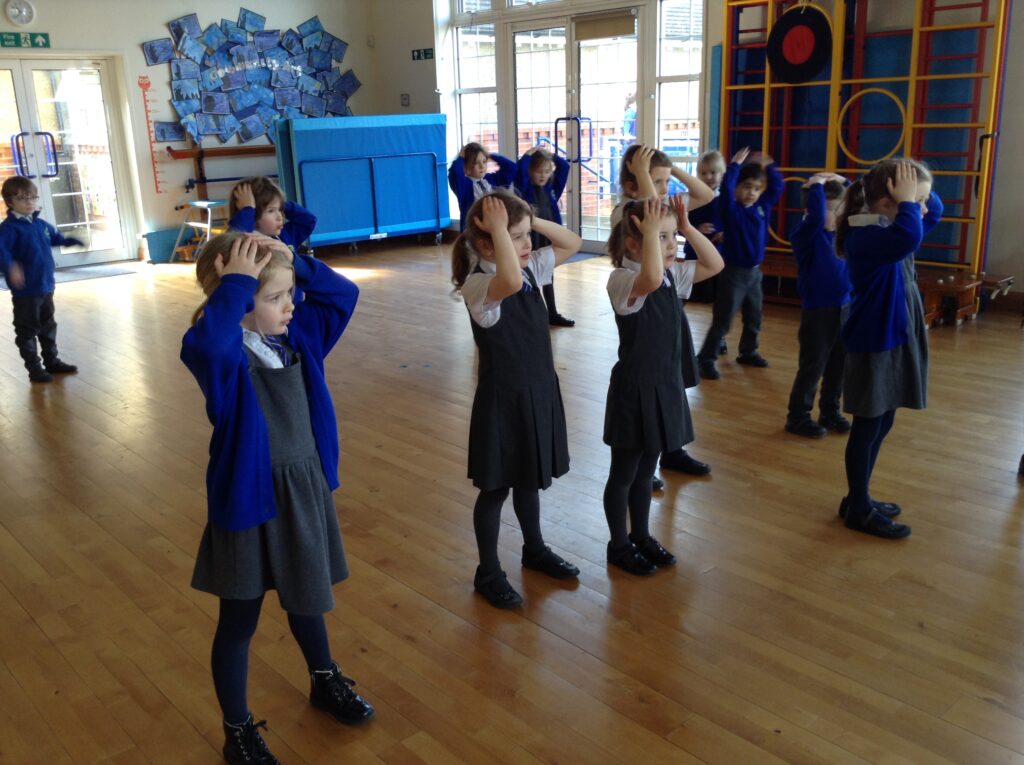
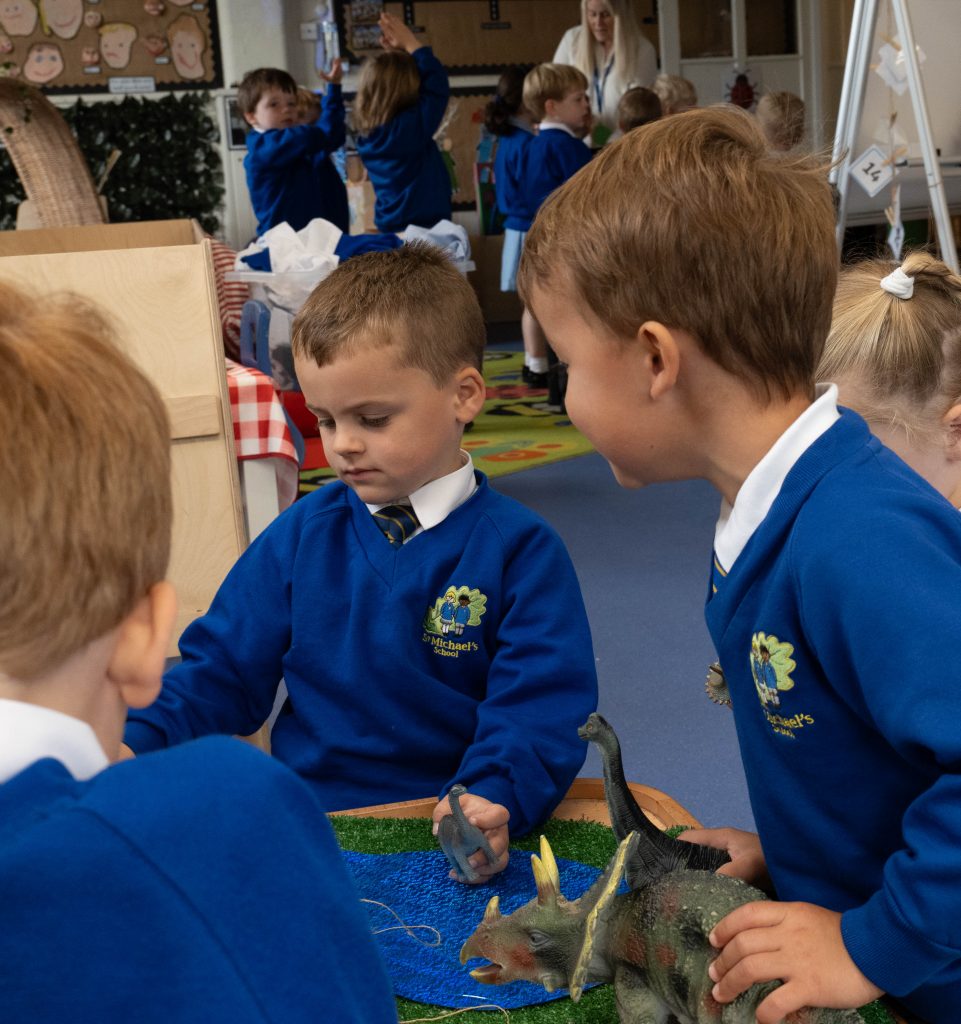
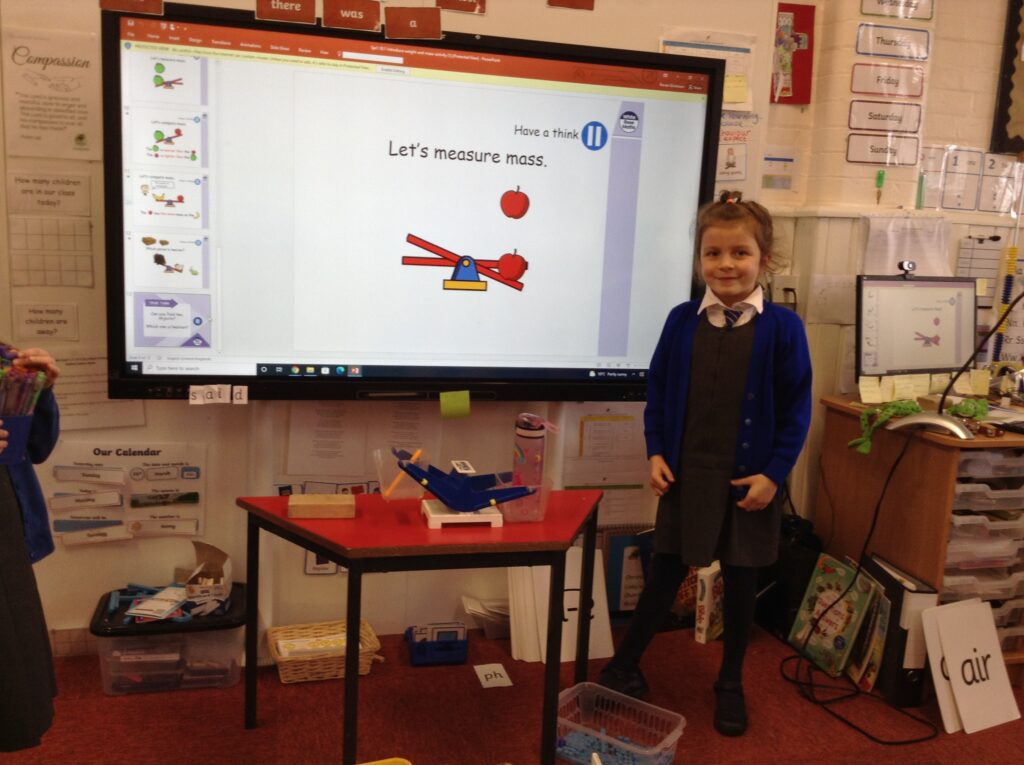
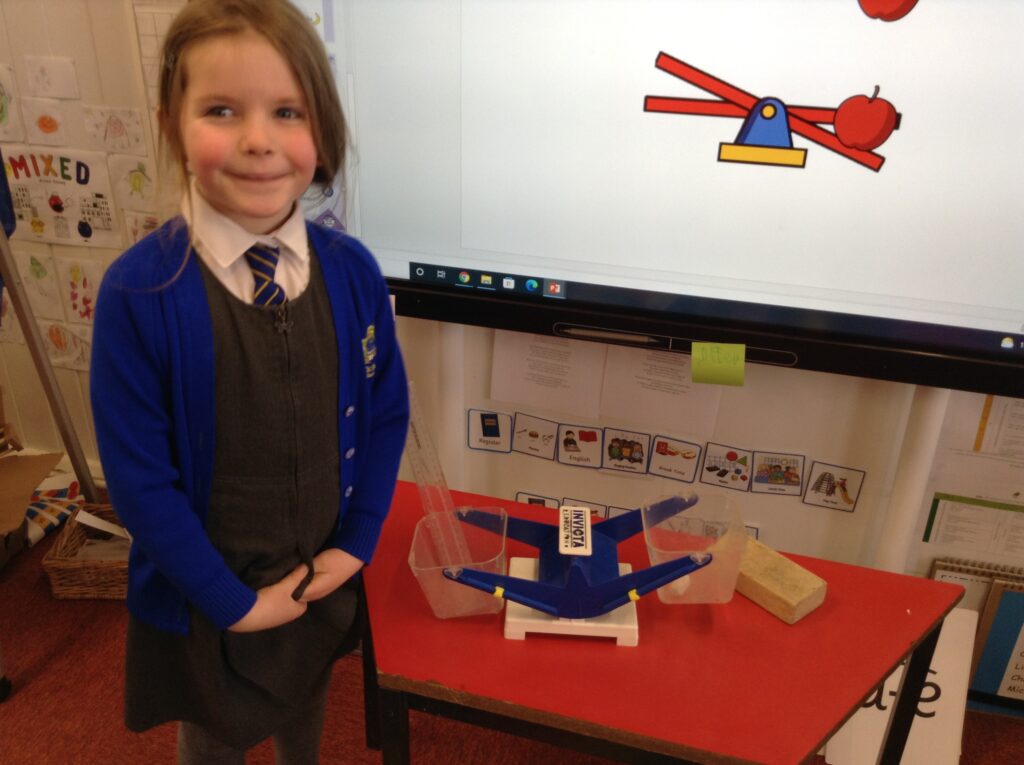
Our aim is to help prepare children for a digital future we haven't imagined yet
How do we know this has made a difference?
At St Michael’s school, our children can talk about things they have observed, questions they have asked and things they have created in Computing. We consider timely assessment in Computing to be key to children’s progress. By eliciting previous knowledge of a topic, we address misconceptions early and help children build on what they already know. Informal assessment and questioning are used every lesson and feed into teacher planning for the next lesson. Computing is tracked using the schools adapted Rainbow Continuum assessment model and this allows us to observe how they progress and develop over time.
The children can talk about…
- Algorithms
- Debugging
- Typing, editing, saving and retrieving.
- How to use technology safely and responsibly.
The children can…
- Make first hand observations about algorithms.
- Talk about how to fix or debug a simple programme
- Create, edit, save and retrieve documents
- Recognise common uses of Information technology
- Use the internet safely.
- Demonstrate what they have learnt to others.
